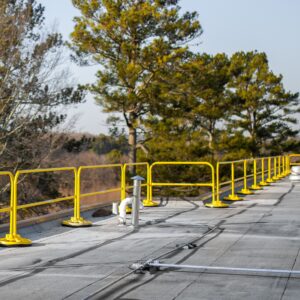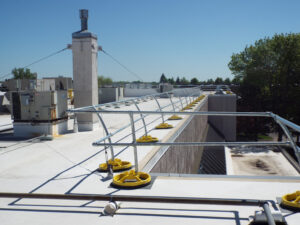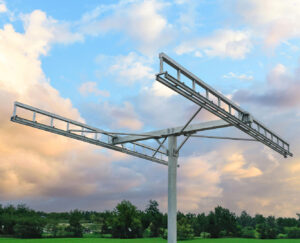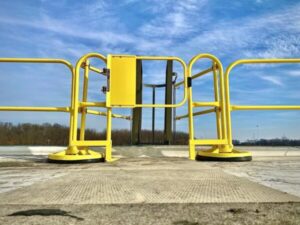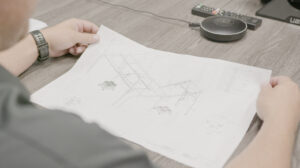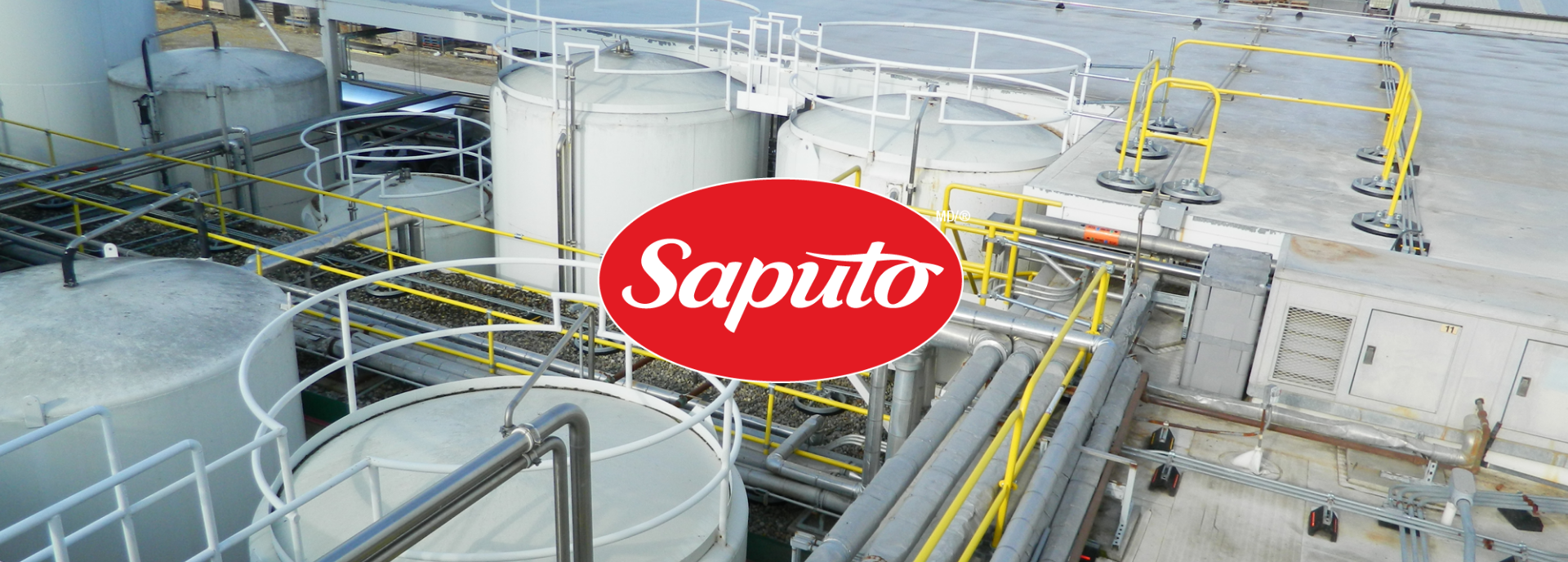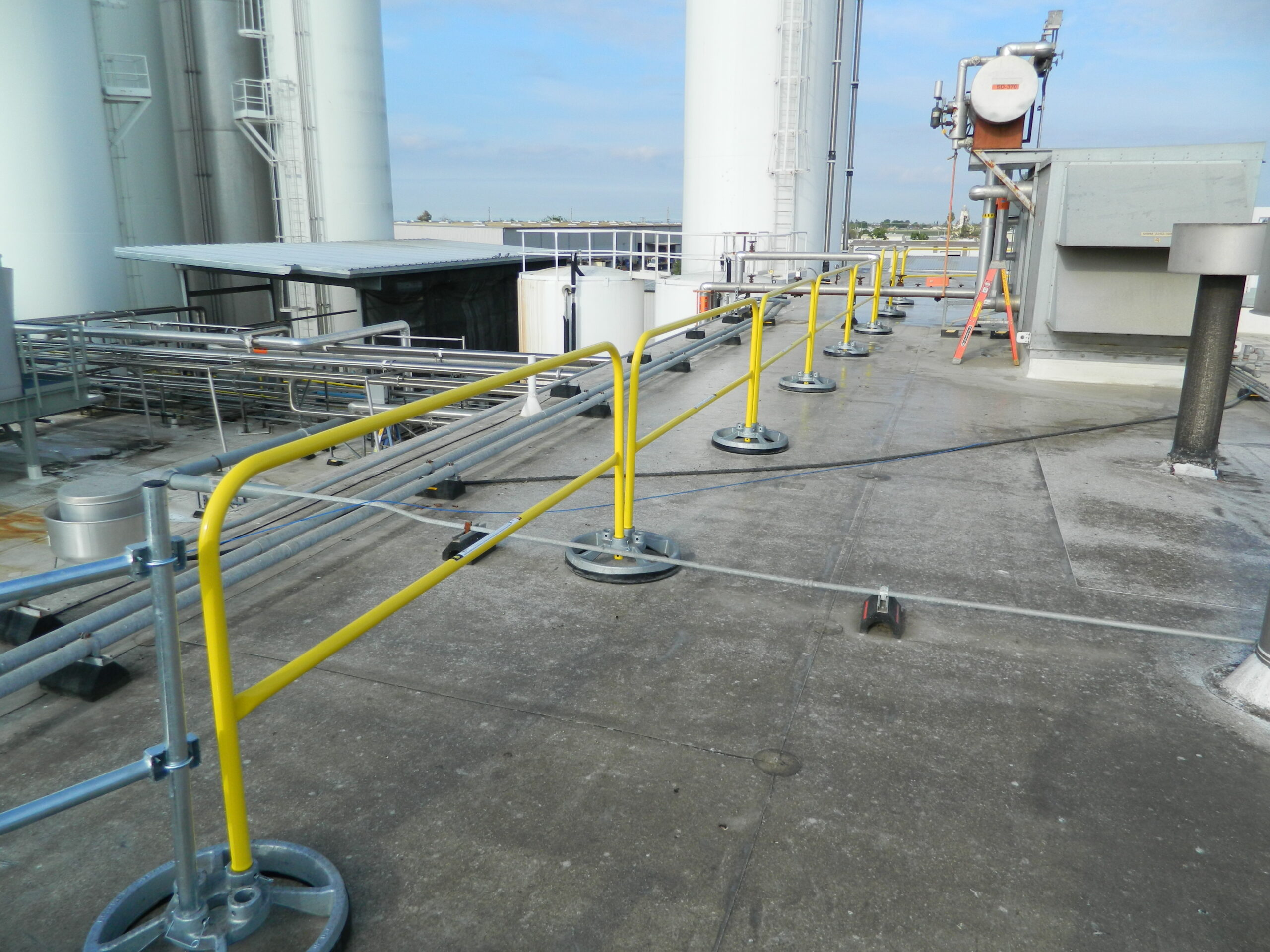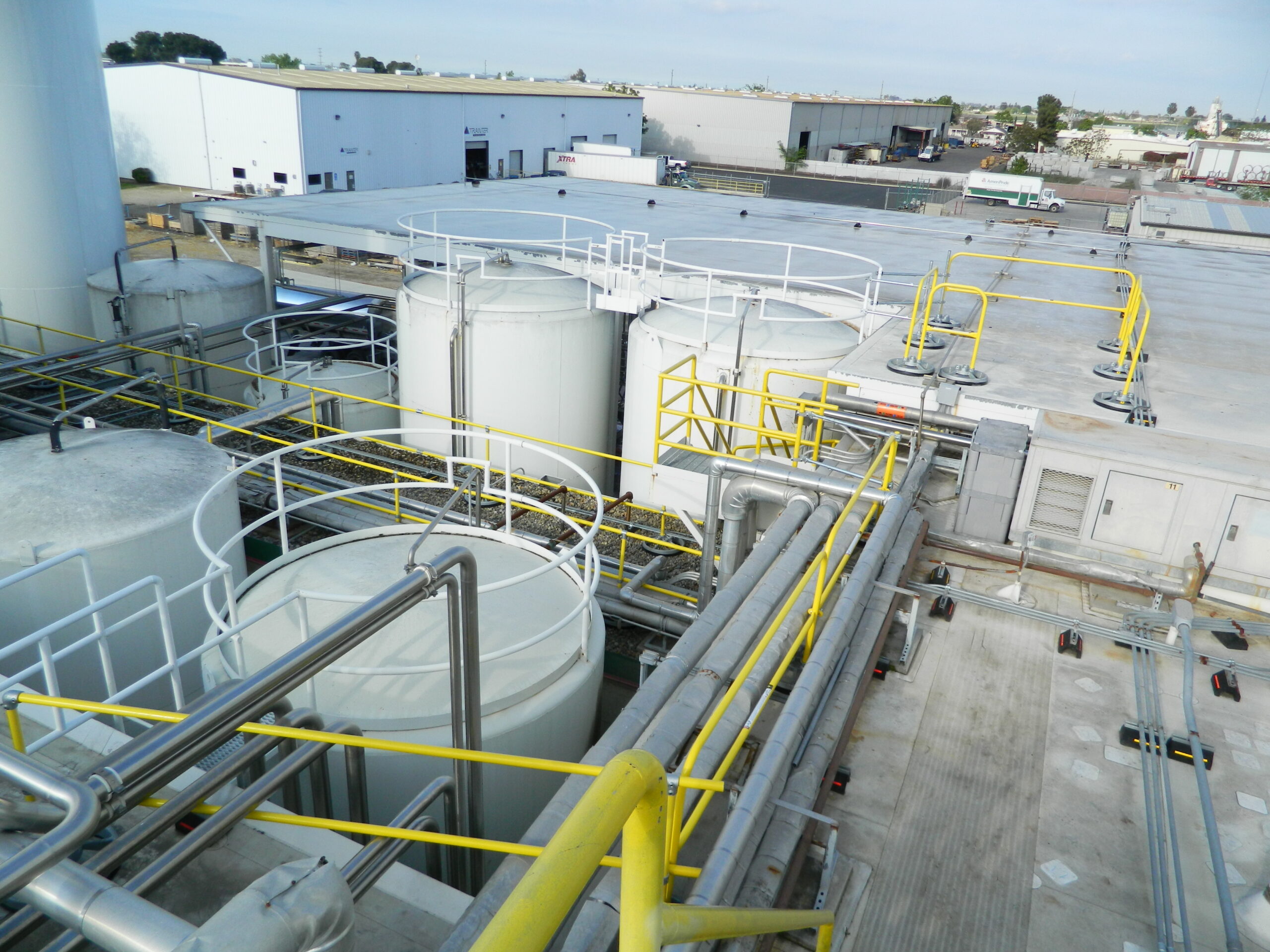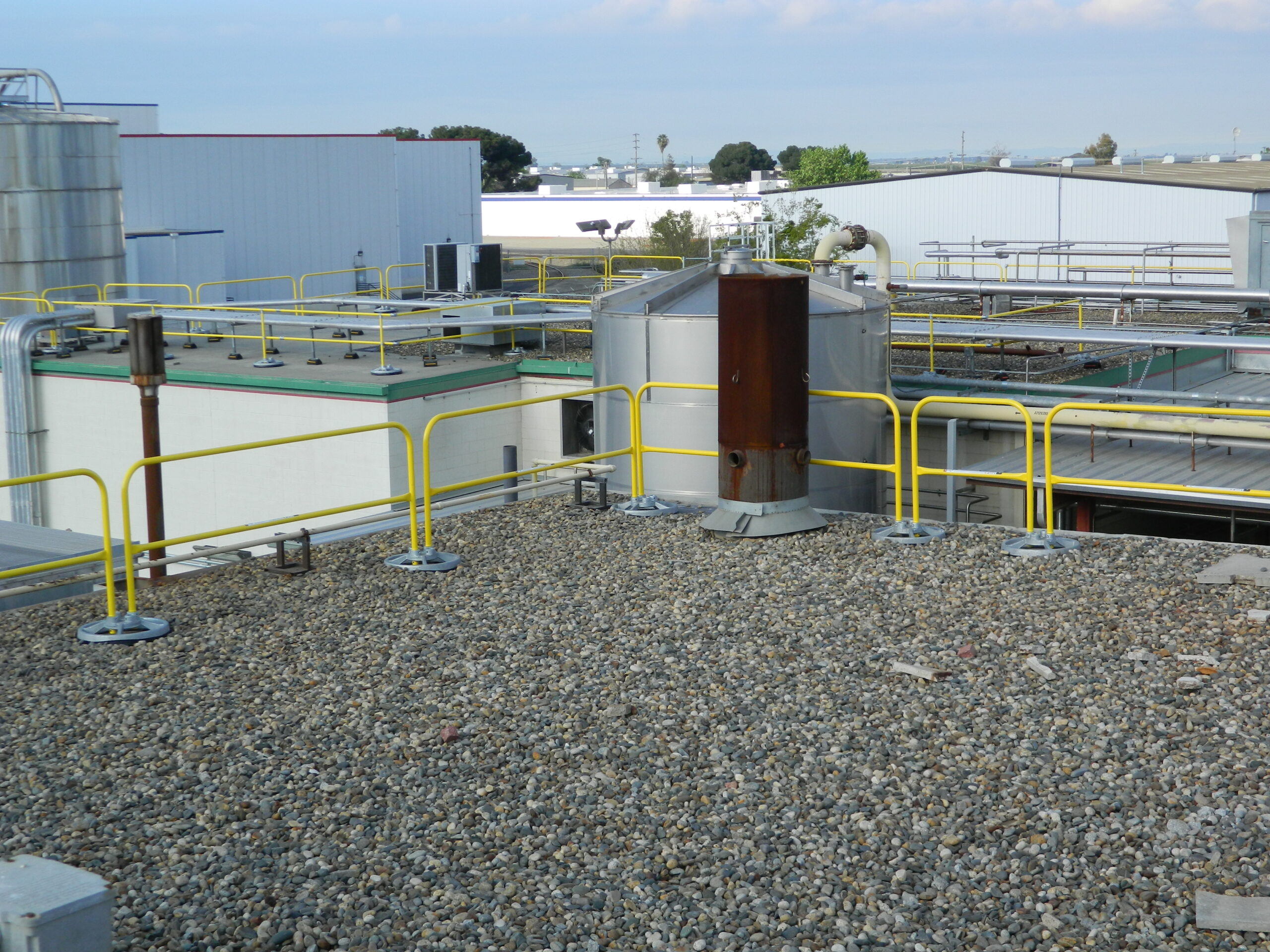From non-compliance to best-in-class in 5 days.
Saputo Inc. is a global dairy producer that had an immediate need for rooftop safety protection at one of its U.S. facilities. What ensued was an update at more than a dozen plants and an ongoing partnership with Safety Rail Company to ensure Saputo has the best-protected roofs in the industry.
Saputo is one of the top dairy companies worldwide. Since its founding in 1954, Saputo and its various brands have become the top dairy producers in Australia, the second-largest in Argentina, among the top three cheese producers in the United States and the largest manufacturer of branded cheese in the United Kingdom. In total, Saputo currently operates more than 65 manufacturing facilities throughout the world.
In 2017, OSHA made updates to its fall protection standard regulations. Shortly after, a site visit by OSHA inspectors to one of Saputo’s U.S. plants determined that its roof wasn’t compliant with the new standards.
Given the new regulations had technically already entered into force, Saputo needed to address the situation immediately. Frank Andrzejewski, Director, Health and Safety Operations for Saputo’s
U.S. cheese division, was tasked with bringing Saputo into compliance ASAP.
“We needed a fix.” Andrzejewski said. “We needed someone to come give us an assessment. We needed someone to be able to install based off not only OSHA regulations, but also our own internal regulations and how we wanted things done. Safety Rail Company was basically a one-stop shop.”
Thanks in large part to its U.S.-based manufacturing, Safety Rail Company was able to assess, supply and install the necessary safety railings to avert any significant OSHA violations and fines.
“That kind of project takes months to coordinate… We didn’t have months. We had about five days.”
“That kind of project takes months to coordinate,” Andrzejewski said. “We didn’t have months. We had about five days.” With its critical need addressed, Andrzejewski could then turn his focus on the 15 other facilities under his jurisdiction. But for Andrzejewski and Saputo, the matter of fall protection extended beyond simple regulatory obligation. Whether it’s checking filters on air handling units or inspecting cooling system piping, roofs at Saputo plants see regular foot traffic.
“There are roofs where I have someone up there once a day,” Andrzejewski explained. “So, safety isn’t just a regulatory thing, but it’s the right thing to do.” Saputo requires its divisions to take bids on major projects, so the company did its due diligence on choosing a contractor to update its remaining sites.
“We wanted to make sure the process was fair and Safety Rail Company’s pricing was usually in line. Sometimes slightly more or slightly less,” Andrzejewski said. “I think one of the things for us, in regards to why we’ve used them almost exclusively, is the ease. It’s turnkey. I don’t need my maintenance guys up on the roof doing that kind of work. That’s something they would have done in the past, but that just didn’t make sense. Let’s let the professionals do it. And honestly, Safety Rail Company pounds it out. They really get it done quickly.”
One thing Safety Rail Company brought to the table through its thorough assessments was additional opportunities for Saputo to improve safety for its workers, such as platforms that needed guarding and roof transitions where one section of roof meets another. Saputo also asked Safety Rail Company for suggestions on how to improve roof access.
“A lot of our roofs just have a vertical ladder that goes up to a hatch,” Andrzejewski said. “There has been a couple of plants where they were able to come back with some really good ideas on how to access the roof safely, to be able to protect that entrance so not just anybody can get access to it and go up those stairs, as well as being able to use it for emergency escape or emergency rescue off a roof. It meets a lot of the criteria we were looking for. They’ve actually come up with a couple of really good ideas regarding roof access.”
Even after its updating project was completed, Saputo maintains an ongoing relationship with Safety Rail Company. Needs tend to arise when there are renovations or expansions. Saputo also calls on Safety Rail Company when they acquire new facilities. Since they first worked together, Saputo has acquired four new plants in the U.S., and Safety Rail Company was tabbed to conduct safety assessments. There’s no contract between Saputo and Safety Rail Company, but Andrzejewski says there’s a level of comfort that keeps them coming back.
“I don’t have to worry about the installers. They’ve been on multiple roofs of ours. I don’t have to worry about anything,” Andrzejewski said. “If there’s an issue, I have one point of contact and they’ve been really good about follow-up. Anytime we need something it’s a phone call and they can get something to a facility within a week. Sometimes even sooner.”
Though it started with a regulatory issue, Saputo now takes pride in the measures it has taken to improve safety at its facilities. “I drive around a lot with my job, and I can say quite honestly that our roofs are probably some of the best protected roofs in the industry,” Andrzejewski said. “It might be bold to say that, but I drive around all the time and I see some roof rails other places. I think we’ve gone above and beyond.”

